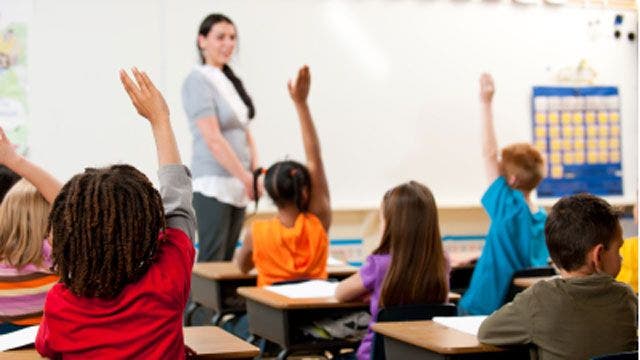
Athletes who experience concussions aren’t allowed to compete again right away so the brain can recuperate. A concussion expert at Washington University School of Medicine in St. Louis cautions that children with concussions may not be ready to go back to the classroom right away, either.
In a clinical report presented in Orlando at the American Academy of Pediatrics National Conference and Exhibition, the researchers recommended that accommodations be made in the classroom for children and adolescents recovering from concussions. The report represents the Academy’s official position and is designed to provide guidance for clinicians who treat young patients who have suffered concussions.
“We focus so much on getting these kids back onto the field that we don’t always think about the challenges associated with getting back into the classroom,” said Mark E. Halstead, MD, a Washington University sports medicine specialist at St. Louis Children’s Hospital. “In addition to physical rest, children recovering from a concussion also need cognitive rest. They can struggle in school and often have difficulty focusing and concentrating for several days or weeks.”
Halstead, an assistant professor of pediatrics and orthopedics, is the lead author of the report “Returning to Learning Following a Concussion,” presented Oct. 27 at the conference. The report will be published in the journal Pediatrics.
Research shows that most school-aged children recover from a concussion in about three weeks. But Halstead emphasized that is only an average. Many children have symptoms such as headaches, blurred vision, neck pain or sadness that last longer. Individual children, he explained, need to be monitored, and how quickly they return to full participation in the classroom must be tailored to how they feel.
Halstead said more research is needed on the effects of cognitive rest as kids with concussions return to learning, but he explained that using available tools, teachers, parents and health professionals can get a good idea of what adjustments in school a child might need in the days and weeks following brain injury.
“Some kids may not be able to handle a full classroom period,” said Halstead. “Or they may need a shortened school day. Others may need rest periods in the school nurse’s office.
“The goal is to keep symptom flare-ups to a minimum and make sure children are not exacerbating symptoms by trying to do too much,” he added. “Not resting the brain could prolong the length of time it takes to recover fully.”
The clinical report calls for a collaborative approach in helping students return to the classroom after a concussion. It should include the child’s pediatrician, family members and school staff responsible for both academics and physical activity.
A checklist could be used to help evaluate what symptoms the student is experiencing and how severe they are. And Halstead explained, one of the most important things caregivers can do is to ask recovering children or adolescents how they feel.
“It is impossible to know if they have blurry vision or trouble comprehending what they’re reading,” he said. “We have to rely on that child or adolescent to tell us.”
More research needs to be conducted on how concussions affect learning, Halstead said. He and the other authors based their clinical report and recommendations on expert opinions and a concussion management program developed at the Rocky Mountain Hospital for Children, Center for Concussion in Denver.

